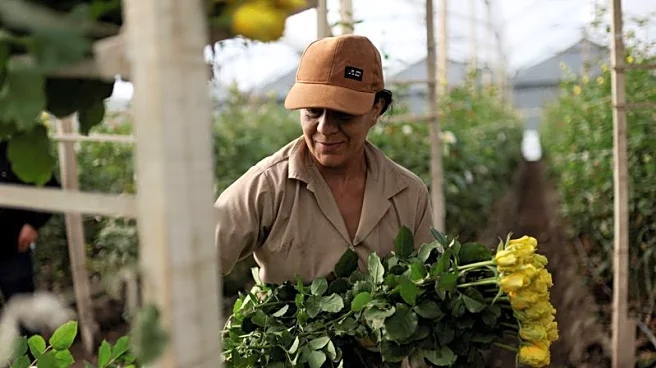What's Happening?
A 6.0-magnitude earthquake has struck eastern Afghanistan, killing over 800 people and injuring 2,500. The quake has caused significant destruction in the Kunar province, with rescue efforts hampered by landslides and difficult terrain. Only a few countries, including Iran, India, Japan, and the EU, have offered relief assistance to the Taliban government. The earthquake comes at a time when Afghanistan is facing multiple humanitarian crises, with more than half of its population in need of aid. The Taliban's appeal for international assistance highlights the challenges of providing aid in a politically sensitive environment.
Why It's Important?
The earthquake exacerbates Afghanistan's existing humanitarian challenges, which have been worsened by international aid cuts and the return of millions of Afghans from neighboring countries. The limited international response to the Taliban's appeal for aid underscores the geopolitical complexities of providing assistance to a regime with controversial policies. The disaster highlights the vulnerability of Afghanistan's infrastructure and the need for effective disaster response mechanisms. The situation poses a significant test for international humanitarian organizations and their ability to navigate political sensitivities while delivering aid.
What's Next?
The international community's response to the Taliban's appeal will be closely monitored, as it could influence future humanitarian assistance to Afghanistan. Aid organizations may face logistical challenges in reaching remote areas affected by the earthquake. The Taliban's ability to manage the crisis effectively could impact its international standing and the willingness of other countries to engage with the regime. The ongoing humanitarian needs in Afghanistan may prompt discussions on how to balance aid delivery with political considerations.
Beyond the Headlines
The earthquake and its aftermath may lead to a reevaluation of international aid strategies in Afghanistan, particularly in light of the Taliban's governance. The disaster highlights the ethical dilemma faced by aid organizations in providing assistance to populations under regimes with questionable human rights records. The situation could prompt a broader discussion on the role of international aid in conflict-affected regions and the importance of ensuring that aid reaches those in need without empowering oppressive regimes.









